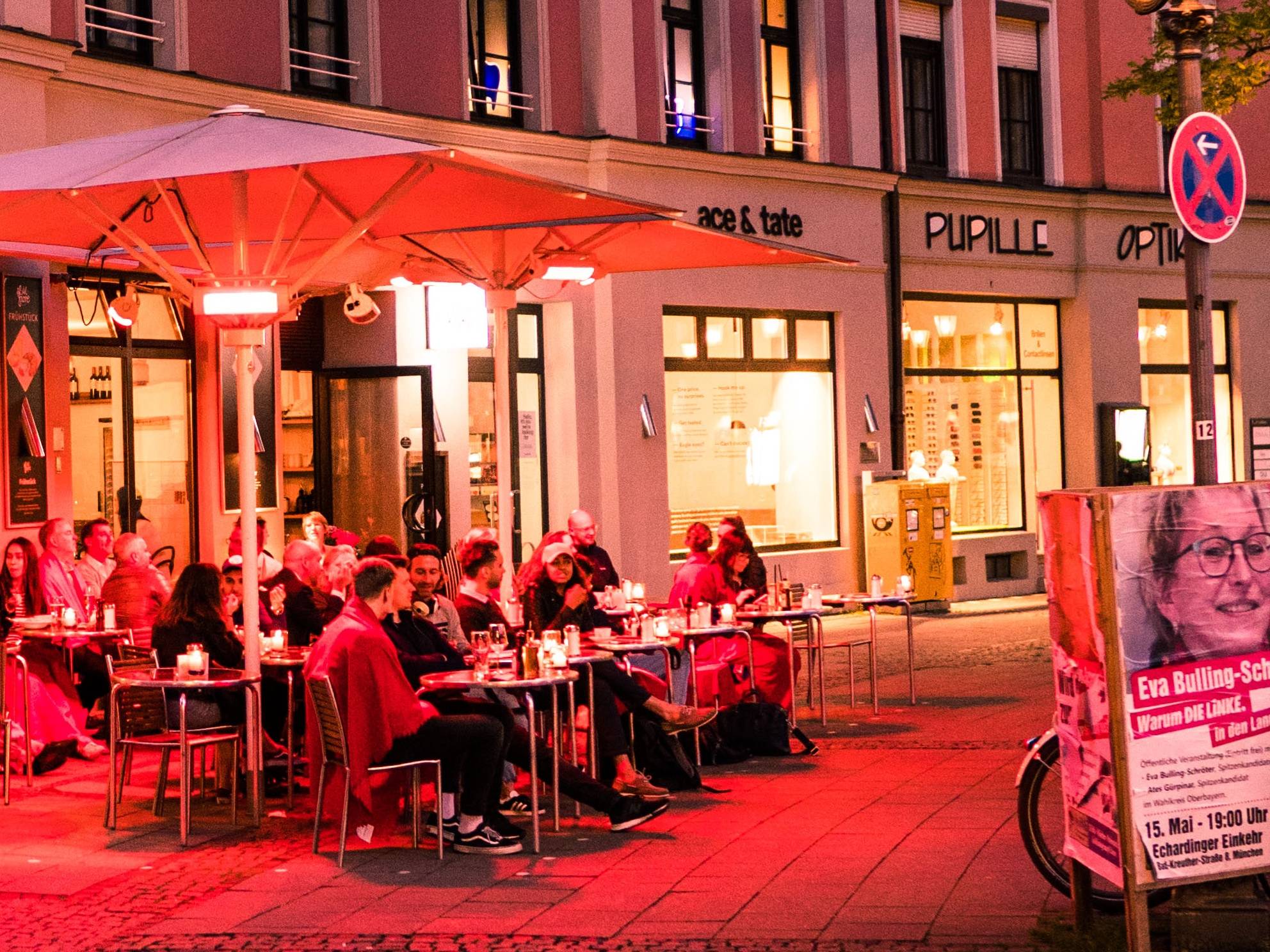Living in Munich as an expat: What you need to know
Before you move to Munich, learn from this guide everything the locals already know to make your life easier in this German city.
Jale
Munich is a popular destination for expats looking to experience life in one of Europe's most vibrant and culturally rich cities. Known for its picturesque architecture, world-renowned beer gardens, and annual Oktoberfest celebration, Munich offers expats a unique blend of traditional German culture and modern city living. From high-quality life and a strong economy to excellent public transportation and endless outdoor recreation, Munich is a perfect place to live as an expat.
If you’re considering calling Munich your new home, whether for work or studies, it's only natural to wonder what to expect from living there. After all, moving to a foreign city is an intimidating task. So, let's dive deeper into what you can expect as an international in Munich and how you can make your life there easier.
Strong expat community in Munich

Making new friends is one of the biggest challenges people face when moving to a foreign country. But one thing that expats will quickly notice about Munich is its strong sense of an international community.
Internationals make up about 30% of the total population of Munich. There’re many groups and organizations that help newcomers connect with each other and get involved in the local community. So even if you don't speak German fluently, you’ll have an easier time meeting new people and making friends.
Munich is a very safe city

Munich offers every opportunity a large city has to offer, such as Paris and Barcelona. Munich is also safer than either of the cities. In fact, Munich is considered the safest city in Germany. In Munich, women can confidently travel alone at night, hate crimes aren’t common, and peripheral neighborhoods are safe to live in. Of course, minor crimes happen occasionally, but violent crime rates are very low.
You’ll be better off having cash on you

In Munich, both card and cash payments are widely accepted. Many shops, restaurants, and cafes accept card payments. But Munich still has a strong tradition of using cash for certain transactions. For instance, most small neighborhood stores, street vendors, and market stalls only accept cash. In these situations, it's always a good idea to have some cash on hand. ATMs are widely available in Munich, and you can find them in most banks, train stations, and shopping centers. If you’re from a non-EU country and don’t have a SEPA bank account, you’ll need a German bank account to withdraw cash easily and without incurring huge costs. Besides, having a local bank account means you can pay your rent and utilities or receive your salary easily.
Cycling is a popular mode of transportation

While Munich has an efficient public transport system, cycling is one of the most popular modes of transportation: almost everyone owns a bicycle in Munich. In fact, cycling in Munich accounts for 18% of all traffic in the city. Locals prefer cycling because cycling is a convenient, environmentally friendly, and affordable way to get around Munich. Many dedicated bike lanes make it easy and safe to cycle around. If you’ve just moved to the city and don’t own your own bike yet, the city has a bike-sharing program called Call a Bike. It’s a convenient way to go for short trips around the central neighborhoods.
You'll have to learn to recycle well in Munich

The residents of Munich are very environmentally conscious. All locals separate the trash and compost organic waste, recycle items, use water and heat efficiently, and prefer sustainable transport over cars. So when you move to Munich, it’s important to respect your community by supporting the environmentally friendly initiatives of the city. In general, all residents respect and follow the city’s environmental policies to create a more sustainable future. Some of these policies include investing in renewable energy sources, developing an efficient public transport system, and implementing comprehensive waste management.
Be ready for a competitive rental market

The rental market in Munich is highly competitive, and the demand for apartments often exceeds the supply. In fact, Munich has the highest rent rates among all German cities. This makes it challenging to find a suitable apartment at a reasonable price, especially in popular Munich neighborhoods like Schwabing or Neuhausen. So it's important to start your search as early as possible and to be prepared to act quickly when you find a suitable apartment. If you start you search on time, you will even find furnished apartments in Munich!
High demand also creates opportunities for fraudsters to post fake listings. So make sure to use reputable rental websites, such as HousingAnywhere, to avoid getting scammed.
Outdoor activities will become part of your life
Munich is renowned for its parks and green spaces. This city has so many incredible parks, like the world-famous English Garden (even bigger than Central Park), Nymphenburg Palace Park, and Westpark.
Locals in Munich like to spend a lot of time outdoors to escape the bustling city life and its fast-paced atmosphere. You’ll see many people jogging, picnicking with friends, playing sports, and walking their dogs.
Beer is the choice of locals

The local drinking culture in Munich is centered around beer and the city's rich brewing heritage. When you hang out with your friends at home or outside, the drinking choice is almost always beer. But it doesn’t come as a surprise since Munich is the birthplace of the world-renowned Oktoberfest and home to many historic beer gardens and traditional beer halls, such as the Hofbräuhaus (possibly the world's most celebrated beer hall) and Augustiner Bräu.
Grocery tips to save money in Munich

The cost of groceries in Munich is high compared to other cities in Germany and Europe. Even basic groceries such as bread, dairy products, and fruits and vegetables are more expensive in Munich than in Stuttgart and Frankfurt. Expect to spend up to €300 per month if you shop at discount stores and up to €400–€500 if you shop at supermarkets and biological stores.
The best place to find reasonably priced food products in Munich is at discount stores such as Aldi and Lidl. Then there’re farmers' markets, such as the Viktualienmarkt, which are a great place to purchase fresh produce, meats, and other foods at a lower cost. Street markets, such as the Flohmarkt am Ostbahnhof, are another great option for finding good bargains.
Now that you know what to expect from your new home, it's time to explore rental homes in Munich so you can kickstart your life as an expat in one of Germany's best cities.
This article is for informational purposes only.
Please reach out to content @housinganywhere.com if you have any suggestions or questions about the content on this page. For legal advice or help with specific situations, we recommend you contact the appropriate authorities.
Related articles
In this article
Strong expat community in Munich
Munich is a very safe city
You’ll be better off having cash on you
Cycling is a popular mode of transportation
You'll have to learn to recycle well in Munich
Be ready for a competitive rental market
Outdoor activities will become part of your life
Beer is the choice of locals
Grocery tips to save money in Munich
Moving to Munich?
Book your rental accommodation from verified landlords in Munich even before relocating. No viewings needed.
Search Now

